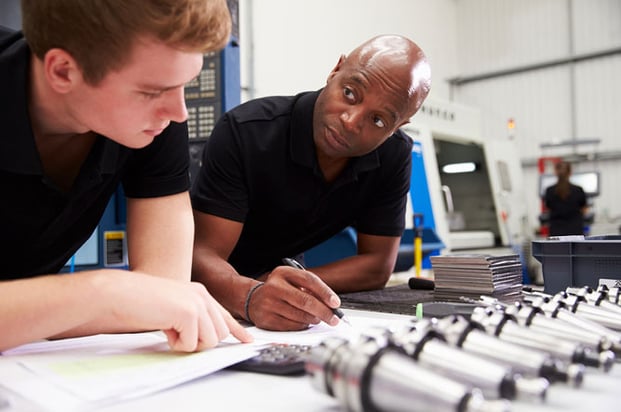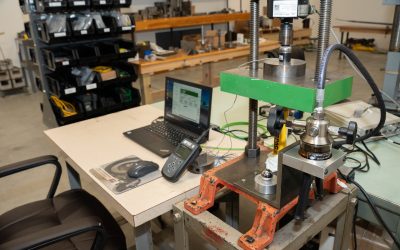Torque-Thrust Sensors for Specialty Applications
Industry Insights
Torque-Thrust Sensors for Specialty Applications

The rotating FSSW tool consists of a shoulder and pin which is plunged into a workpiece and then moved along the intended weld seam. The pin plastically deforms the parent materials and forges them together under the shoulder. The axial force that results in the forging pressure has to do with rotation speed, traverse speed, and how deeply the tool is plunged into the workpiece. FSSW can save energy and costs compared to electric resistance spot welding in many cases.
This type of welding is particularly important in the aircraft and automotive industries due to interest in joining lightweight alloys. Advantages of FSSW include low heat input and relatively low maximum temperatures, lack of toxic fumes, excellent bonding, and a process that can be automated. The technique has tremendous potential in manufacturing, where it can replace many traditional joining techniques.
Why Torque Measurements Are Essential to Industrial Processes
Force control is essential in FSSW applications. This type of welding requires a large axial force to be maintained on the joining tool, and without force control, robotic FSSW processes are prone to welding flaws as the robot repositions linkages to move along the intended weld seam. Companies developing FSSW applications are interested in measuring torque so that processes can have consistent, desired outcomes with repeatable quality.
Torque sensors along with electronic components are used to measure torque with FSSW. In these sensors, strain gage technology is used to produce an electrical signal proportional to measured torque so that torque can be monitored. But sometimes conventional dynamometers are not appropriate for the torque measurements required for a particular industrial application. Rotating dynamometers, for example, may not have sufficient stiffness for an FSSW application. In these cases custom torque-thrust sensors may be designed.
Custom Torque-Thrust Sensors
Accuracy of Torque-Thrust Sensor Measurements
Accuracy of torque-thrust sensor measurements is paramount. Sensing elements must be chosen depending on the application, and they are scaled up or down to accommodate the capacity a customer requires. Sensing elements on custom torque-thrust sensors sometimes must be incorporated into unique mechanical packages, and must be protected to withstand environmental conditions of the user’s application. Outside geometry may need to be machined to any number of geometric shapes for a customer’s requirements. What’s more, all sensors must be calibrated using NIST-traceable standards. Finally, sensors must communicate with instrumentation or data acquisition systems so users can monitor torque-thrust measurements easily.
Delivery of Custom Devices Doesn’t Have to Take a Long Time
The key to acquiring custom torque-thrust sensors in a timely manner is working with a provider that fully understands “custom off-the-shelf” sensors. With an extensive library of existing designs covering all capacities and configurations, providers like Sensing Systems are able to turn machine parts into sensors by adding measurement capability, modifying existing parts or manufacturing new parts as needed. What this means for customers is highly accurate, calibrated torque-thrust measurement from a sensor designed specifically for their needs, like the need to measure torque in FSSW applications.
Whether you need load cells, torque sensors, instrumentation, or calibration kits, Sensing Systems can provide you with an off-the-shelf or custom measuring device that perfectly meets your needs, with the efficiency of custom-off-the-shelf production. If you need help finding the perfect measurement technology for FSSW or another application, please feel free to contact one of our qualified specialists. We would be more than happy to speak with you and answer any questions you may have.
Industry Insights
Load Cells for Robotics and Automation: Enabling Precision and Control in Robotic Systems
Industry InsightsEnabling Precision and Control in Robotic SystemsIn the...
INDUSTRIAL BOLTING
Background: A Bolted Joint is the most widely used method for fastening...
Ensuring Precision: The Significance of Metrological Traceability in Load Cell Calibration
Industry InsightsIn the world of measurement and calibration, precision...




